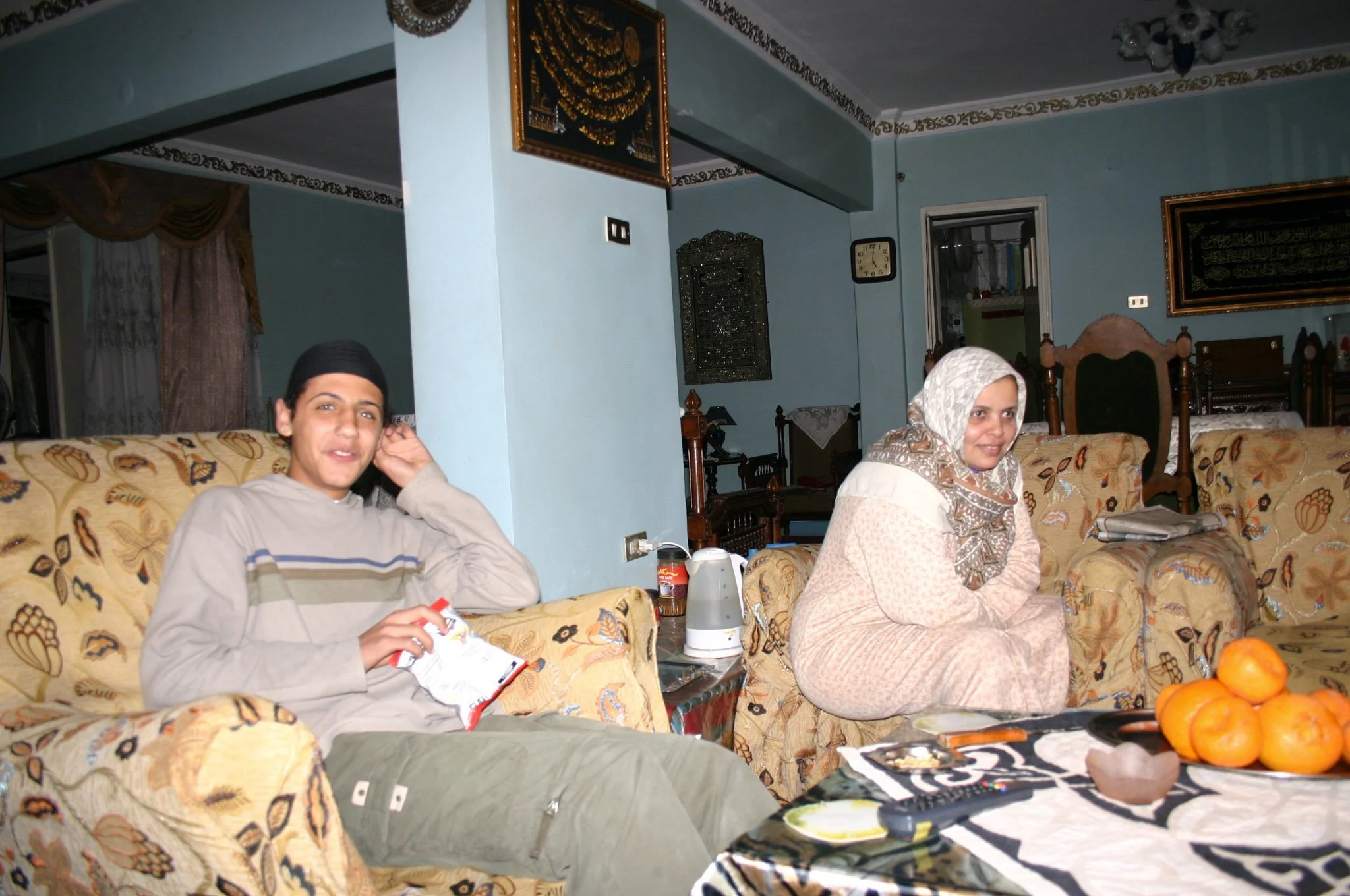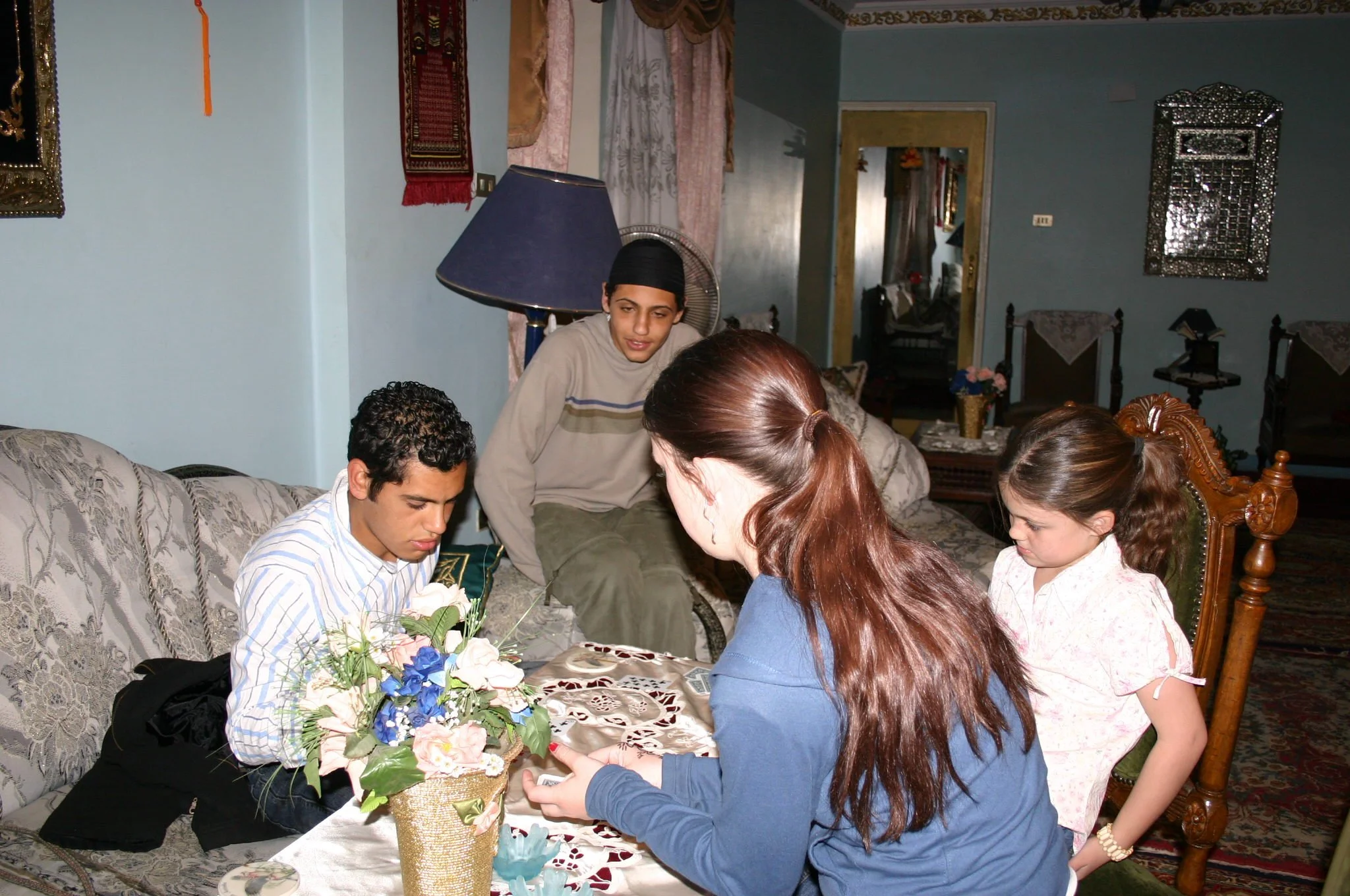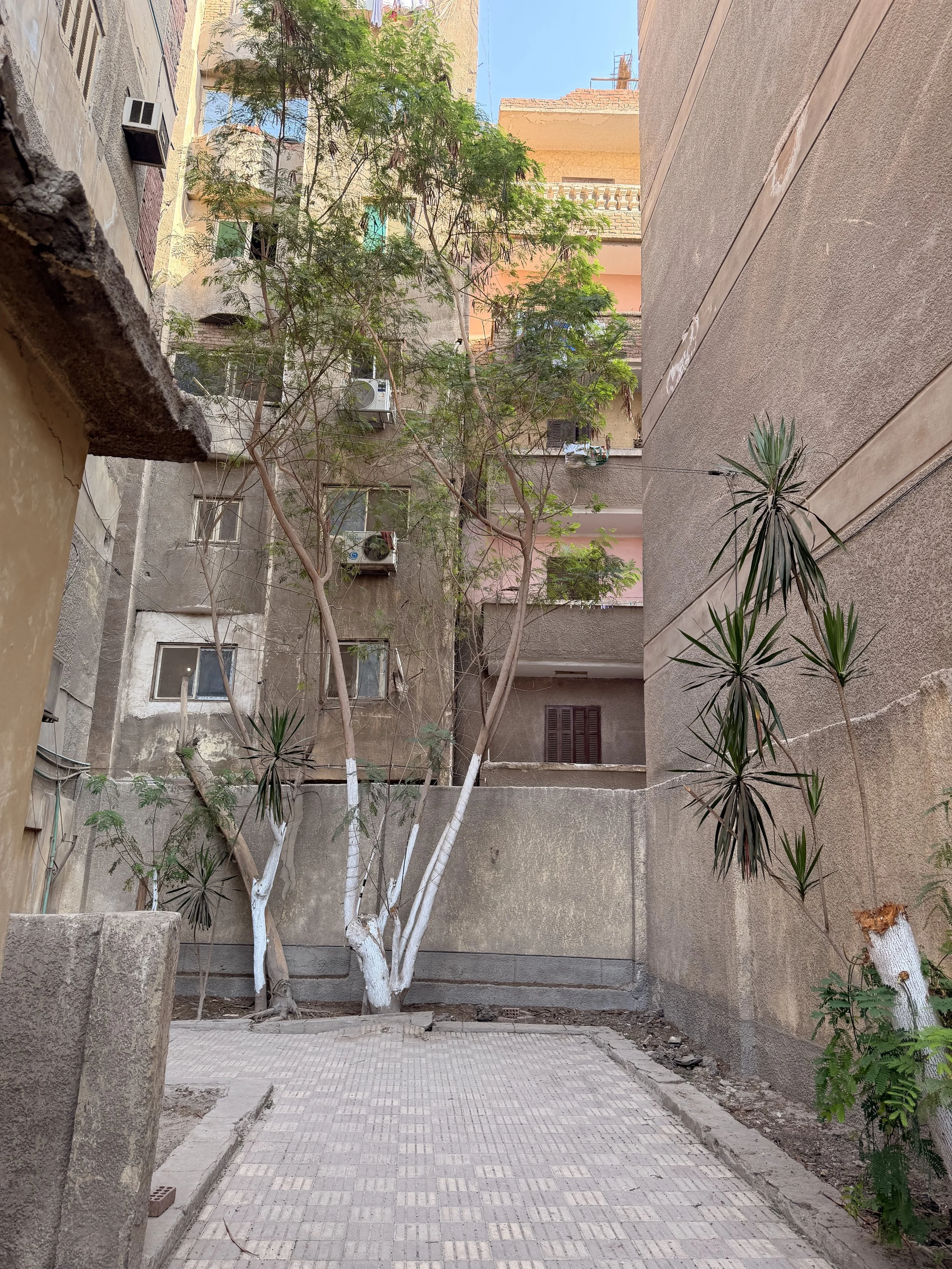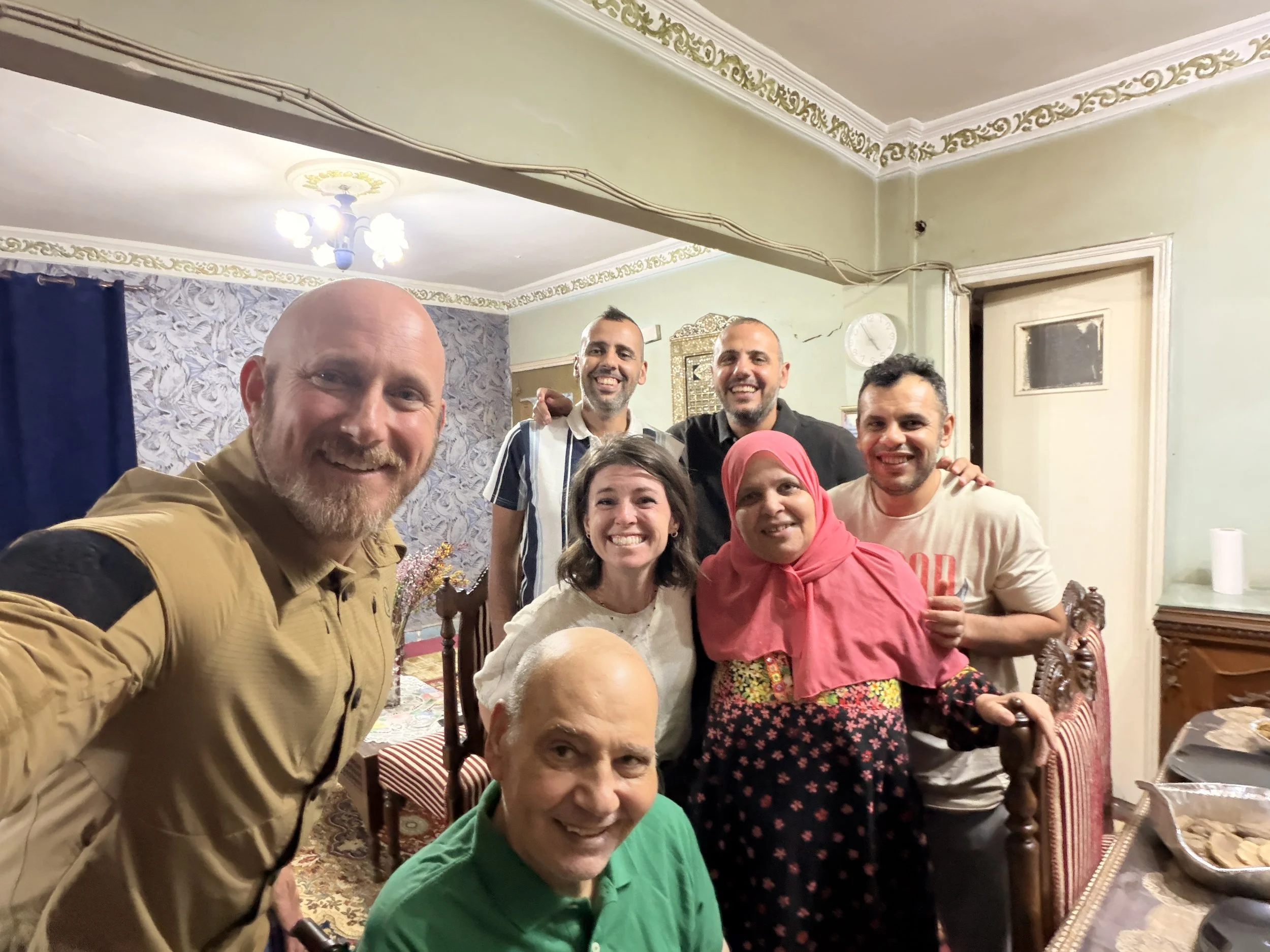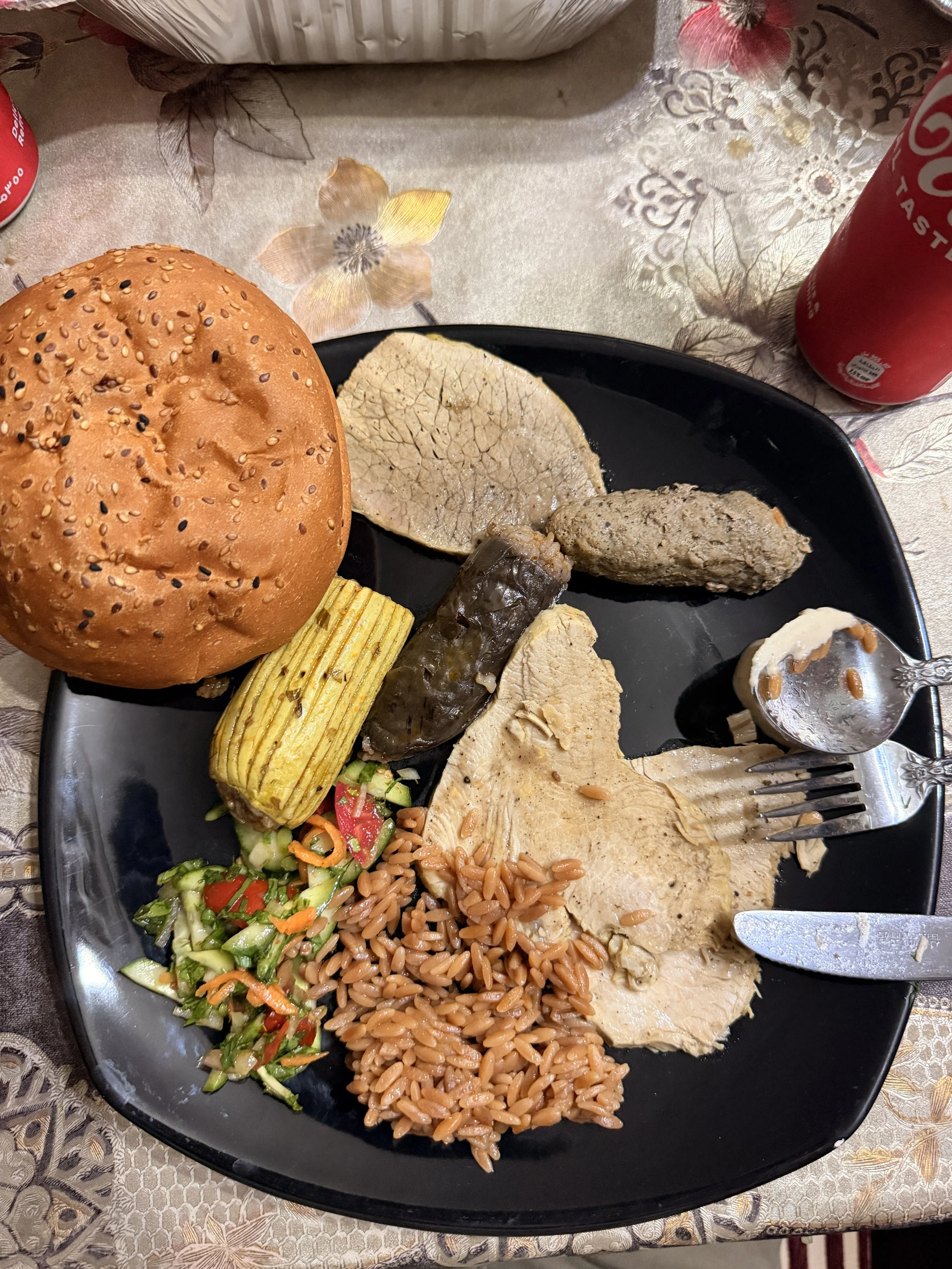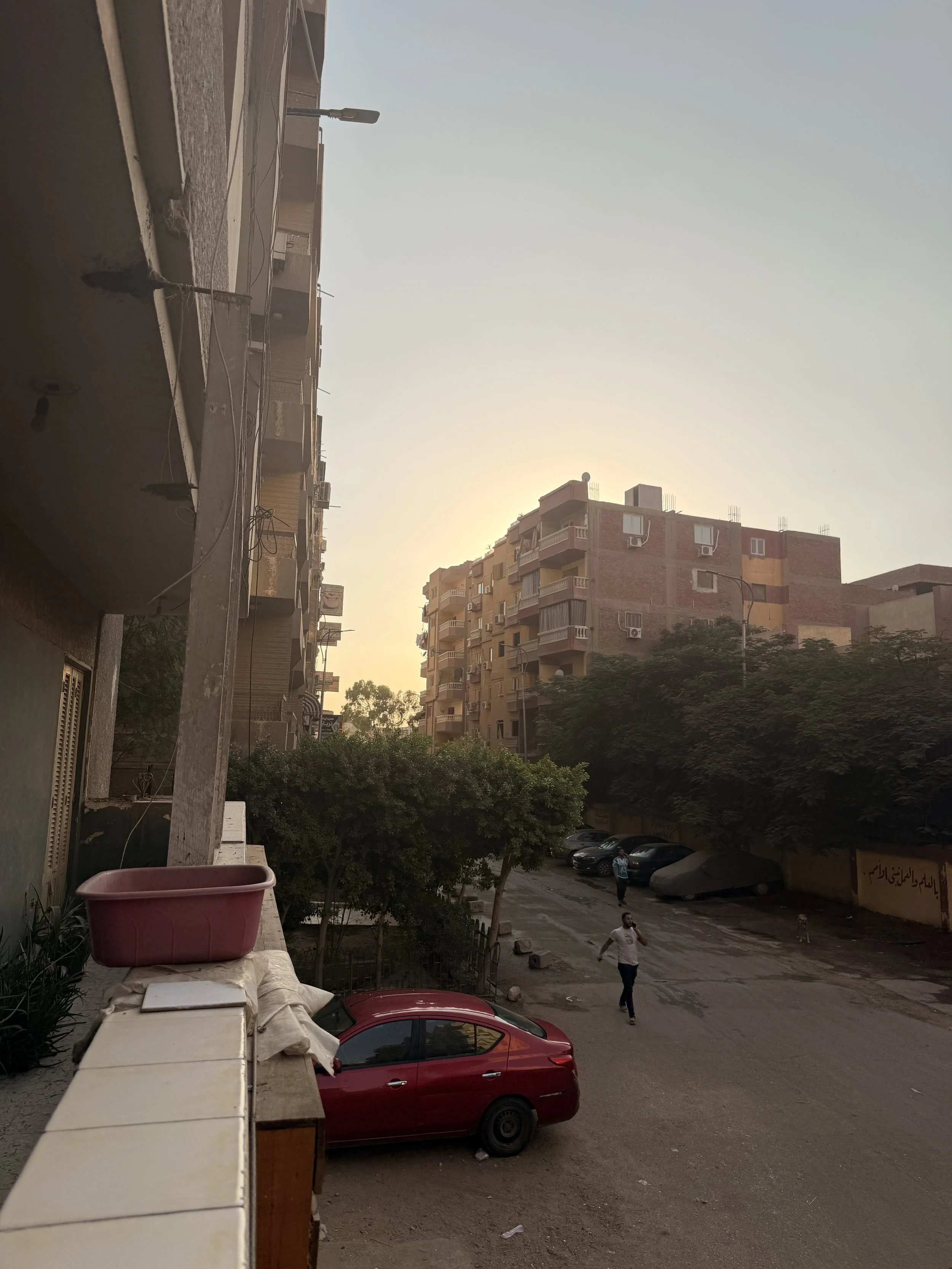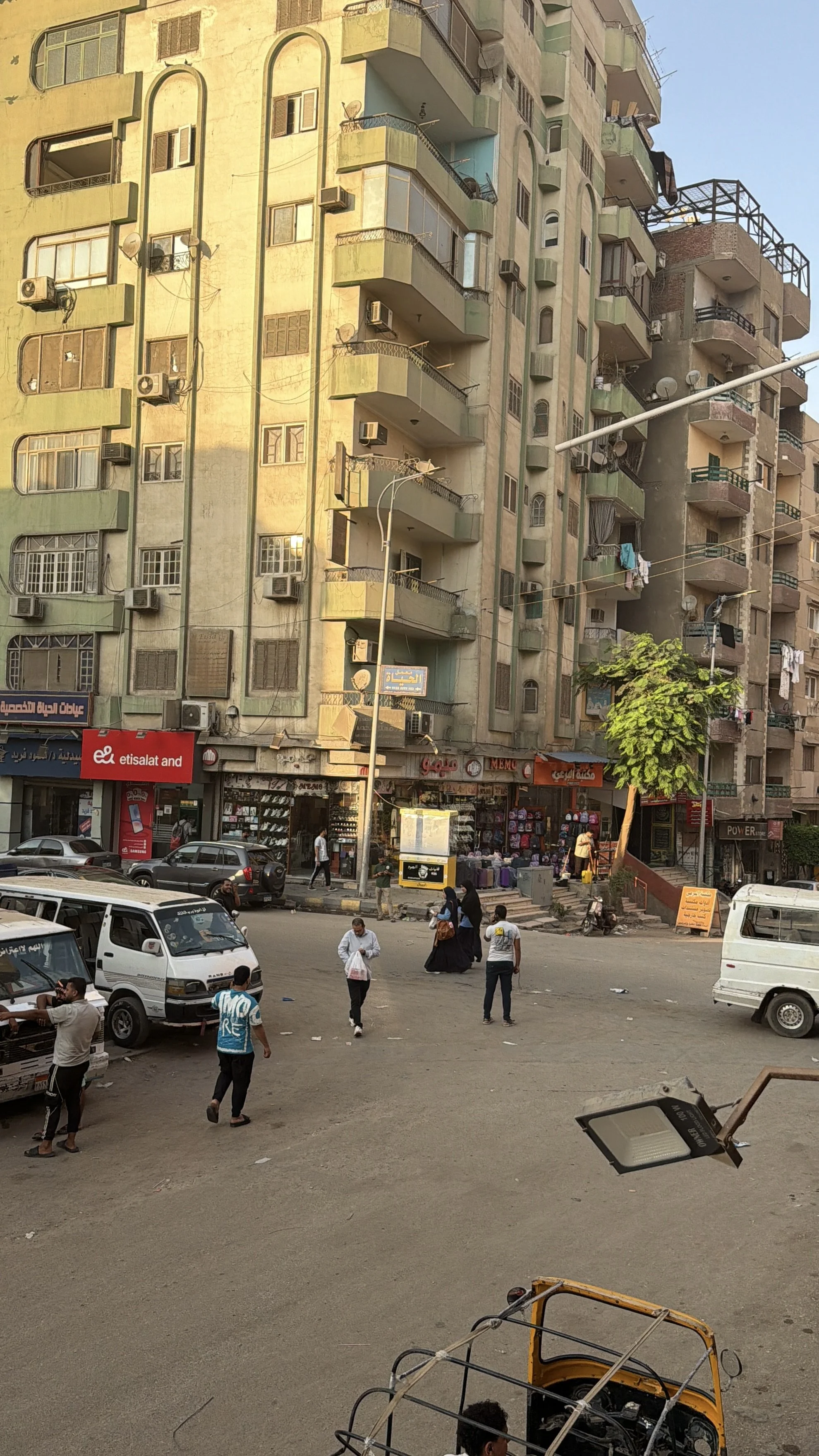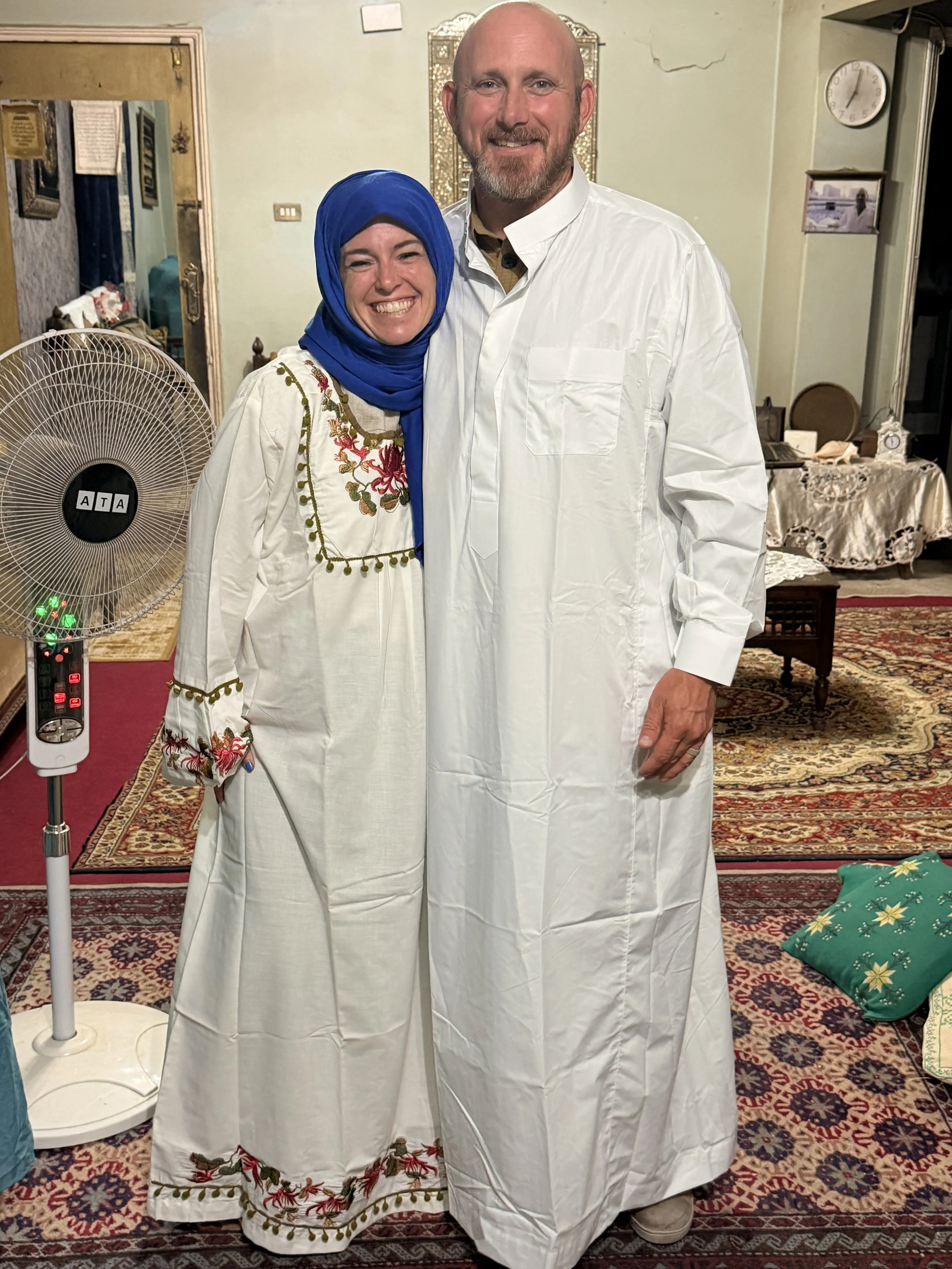Two Dinners, Twenty Years Apart
When I was fifteen, my parents arranged for us to have dinner with an Egyptian family she’d found through the internet back when the internet still felt like magic. She connected with a man named Walid, who lived just outside Cairo near the pyramids in Giza. It was a leap of faith, booking something so personal, sight unseen, across the world.
I remember walking up two narrow flights of stairs, tired from travel, into a home that looked nothing like ours. The furniture was carved and ornate, the fabrics patterned and heavy. The walls were painted in soft blue and rose, trimmed in gold. Tapestries embroidered with Arabic verses hung like quiet blessings. The air smelled floral and warm a mix of perfume, dust, and the spices of dinner that had been simmering all day.
The table was overflowing: roasted chicken, spiced rice with peas and ground beef, bowls of molokhia, mahshi, and baskets of baladi bread. There was more food than I’d ever seen in one place “as big as a Thanksgiving dinner,” I’d written in my journal that night.
They kept saying “eat, eat!” and I remember trying not to offend them, so I just kept eating until I felt sick. It wasn’t that the food wasn’t good, it was delicious, it was that everything felt new: the flavors, the generosity, the joy of being served again and again. Their family had three boys, about our ages, and though conversation was awkward at first, it didn’t take long before we were laughing.
That dinner was one of the most defining experiences of my childhood. It was the first time I really understood what it meant to see how other families live, to share a table, to be welcomed, to feel both foreign and completely at home.
🕰 Twenty Years Later
Two decades later, I found myself climbing those same stairs, this time with Andrew.
Before our trip, I had reached out to Walid’s sons, Zizo and Mido. They replied right away. We exchanged messages for months, working around our itinerary, and planned to meet on our first night in Cairo.
I told Andrew not to count on me recognizing them, we were all teenagers back then, but the moment they walked through the hotel doors, I knew. They smiled, waved a little awkwardly, and immediately started laughing. They remembered everything. They teased that my sister Shaena only drank Orange Fanta, and that Chartise had glasses and a nickname they’d made up for her, something from Greece that made no sense to anyone but them.
We walked together to the sports club where they now coach karate. Watching them lead their students, with the same enthusiasm they had as kids, was surreal. We talked about work, relgion, and family, and the conversation flowed easily, even with pauses and translations.
A few nights later, we went to their home for dinner. The neighborhood is in Giza, a maze of pink, orange, and gray buildings, each one with its own story written in laundry lines and satellite dishes. Downstairs, small corner shops sold chips, soda, and magazines. Tuk-tuks buzzed past old taxis and shiny new sedans, and as we arrived, the evening call to prayer echoed across the neighborhood. From their balcony, we could see the rooftops glowing in the sunset as voices rose in unison.
When we walked through the door, I felt an immediate rush of memory. The carved furniture, the patterned rugs, the same low hum of Cairo outside the windows. Even the smell, floral, spicy, faintly smoky, was exactly as I remembered.
Their mother greeted us with the same warmth she’d shown twenty years ago, she came up and gave me a warm hug. She had been cooking for days. The table was covered in trays of stuffed grape leaves, roasted eggplant, turkey, lentils, and my favorite — mahshi. Every dish was perfectly seasoned, layered with herbs and spice.
Andrew quickly became the night’s entertainment. Every time he cleared his plate, another serving appeared, then another, and another. At one point, he tried to politely decline, saying he was full, and she just laughed and handed him an entire new tray. By the tenth round, I was laughing so hard. I could feel how much everyone in their family looked out for one another. I loved to just sit and watch, which was pretty easy as there was a ‘football’ game playing and it helped with the conversation.
After dinner, they lead us to the couch in the living room and poured tea into delicate glass cups, sweet, strong and very hot. We sat together in the same living room I remembered from my childhood. The TV played the evening broadcast from Mecca, and they explained what was happening, the rituals, the meaning, the rhythm of devotion.
Their mother talked to her sons saying remembered my mom immediately. She said she’d never forgotten how warm and kind she was, how she’d encouraged us kids to talk and play with her sons. Hearing her say that stopped me in my tracks. My mom had no idea, twenty years ago, that her presence would ripple forward like this, that it would bring two families back together.
Then, in perfect Egyptian fashion, they brought out one last surprise: traditional galabeyas for Andrew and me. They insisted we try them on right away. So we stood there in the middle of the living room, laughing, wrapped in white cotton and generosity.
That night wasn’t the kind of experience where you sit back and relax, it was the kind that makes you lean in. The kind that reminds you why you travel in the first place.
We left their home late, walking down the same narrow stairs into the street. The city hummed below, the air warm and familiar. I looked back up at their window, light spilling into the night, and thought about how small the world becomes when kindness crosses generations.
I hope one day to bring my daughters here. To let them sit at that same table, taste mahshi straight from the kitchen, and learn what I learned all those years ago:
that love and hospitality are a language of their own.





